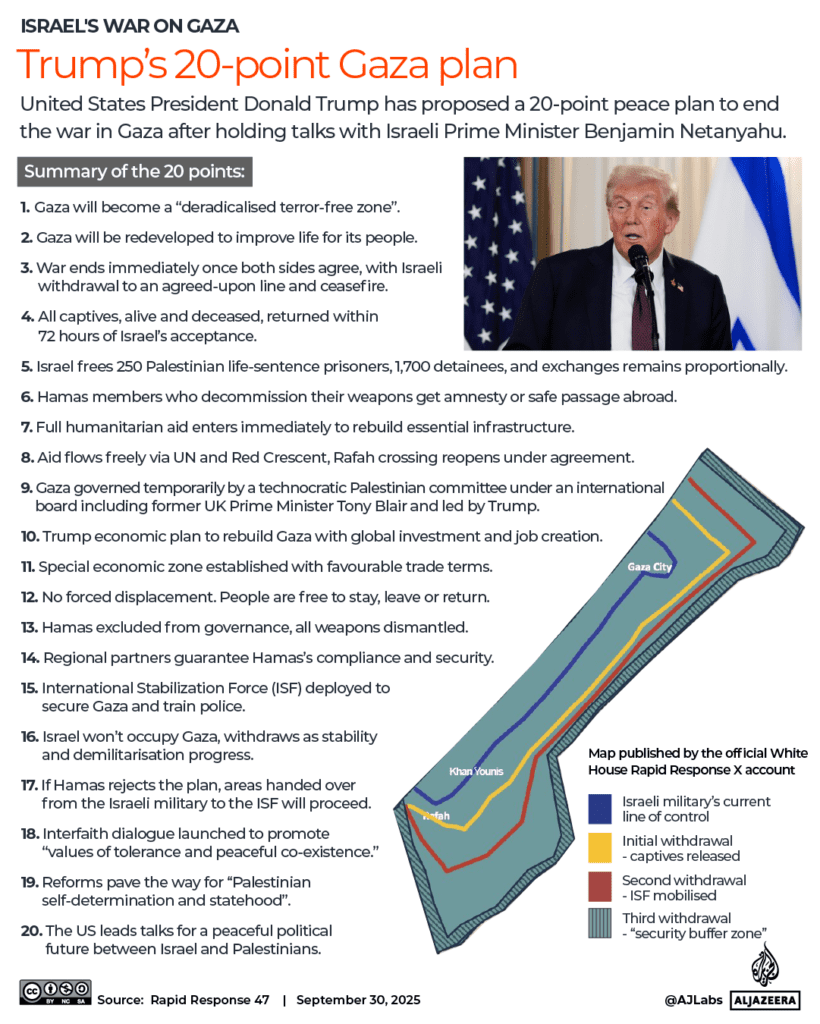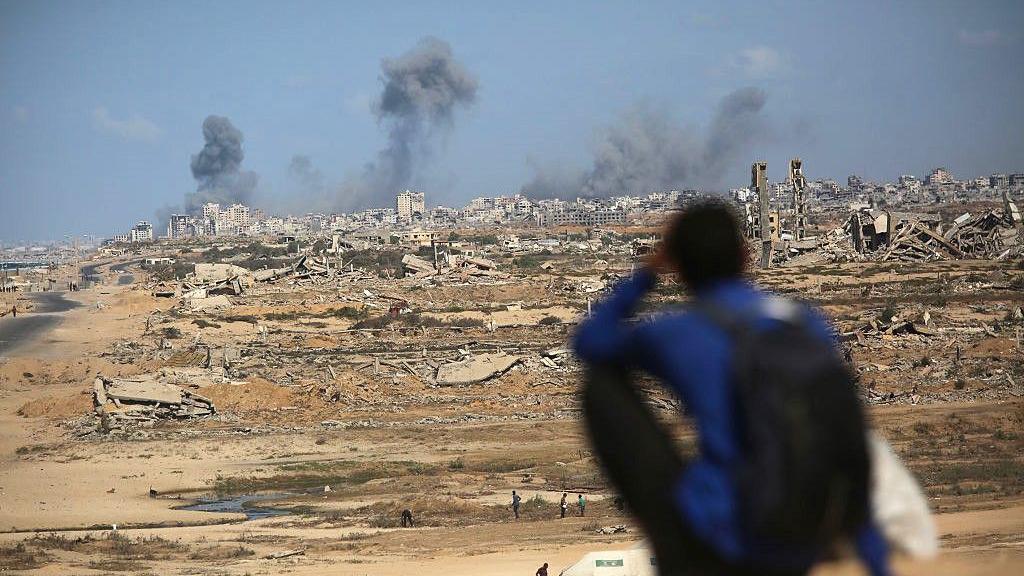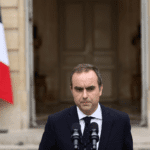Negotiators for Israel and Hamas met in Egypt on Monday for the first round of indirect peace talks under President Donald Trump’s 20-point Gaza peace plan — with both sides describing the opening day as “positive.”
The talks, held in the Red Sea resort city of Sharm el-Sheikh, mark the most significant diplomatic push yet to end the devastating two-year Gaza war. Mediators from Egypt, Qatar, and Turkey joined the discussions, while Trump’s special envoy Steve Witkoff and Jared Kushner represented the US delegation.
Related: Trump and Netanyahu Present Gaza Peace Plan, Hamas Yet to Respond
Early Signs of Breakthrough
An Egyptian official familiar with the negotiations said the parties “agreed on most of the first-phase terms,” including a mutual ceasefire and the release of Israeli hostages and Palestinian prisoners. Talks are set to resume Tuesday.
White House Press Secretary Karoline Leavitt confirmed that technical teams were reviewing lists of captives, saying the administration hopes to “build momentum for broader steps in Trump’s peace framework.”
Trump, speaking from the Oval Office, said the negotiations were off to a strong start:
“We have a really good chance of making a deal. I think Hamas has been agreeing to things that are very important,” he told reporters, while emphasizing that his “red lines” remain firm.
UN Secretary-General Antonio Guterres praised the talks, calling Trump’s proposal “an opportunity that must be seized to bring this tragic conflict to an end.”
A Fragile Backdrop
Even as negotiators met, Israeli airstrikes continued across Gaza, killing at least 10 Palestinians on Monday, according to Al Jazeera. The Gaza Health Ministry reported the death toll has now surpassed 67,160, with 169,000 injured since the conflict erupted following Hamas’s Oct. 7, 2023 attacks that killed roughly 1,200 Israelis.
The Hamas delegation, led by Khalil al-Hayya and Zaher Jabarin, told mediators that ongoing bombings undermine progress, but agreed to continue talks. Both men survived an Israeli assassination attempt in Doha last month.
Trump credited joint Arab-Turkish efforts for keeping Hamas at the table, and commended Israel for participating in what he described as a “historic chance for peace.”
What’s at Stake
Trump’s 20-point plan — released last week — envisions a three-phase roadmap featuring an immediate ceasefire, large-scale humanitarian access to Gaza, and a transitional governance framework with Arab League oversight.
The longer-term goal, according to US officials, is to create a demilitarized Palestinian region backed by international guarantees and economic reconstruction funds led by Gulf partners.
The first phase, which negotiators are currently addressing, centers on a hostage-prisoner exchange, a temporary ceasefire, and guarantees for aid corridors through Rafah and northern Gaza.
“Tremendous Progress,” but Challenges Ahead
As the second anniversary of the Hamas attack approaches, Israel prepares for a national day of mourning, while world leaders cautiously welcome progress.
Despite optimism, analysts warn that deep mistrust, ongoing military operations, and political pressure inside Israel and Gaza could derail the fragile talks.
Still, Trump remains bullish:
“We’re closer to peace than we’ve been in years,” he said. “But both sides need to move fast.”
Day one of the Egypt-hosted Gaza peace talks has ended with cautious optimism. Both sides agreed on most first-phase terms under Trump’s plan — ceasefire and prisoner exchanges — but violence continues on the ground. The coming days in Sharm el-Sheikh will determine whether this fragile momentum can translate into a lasting truce.











